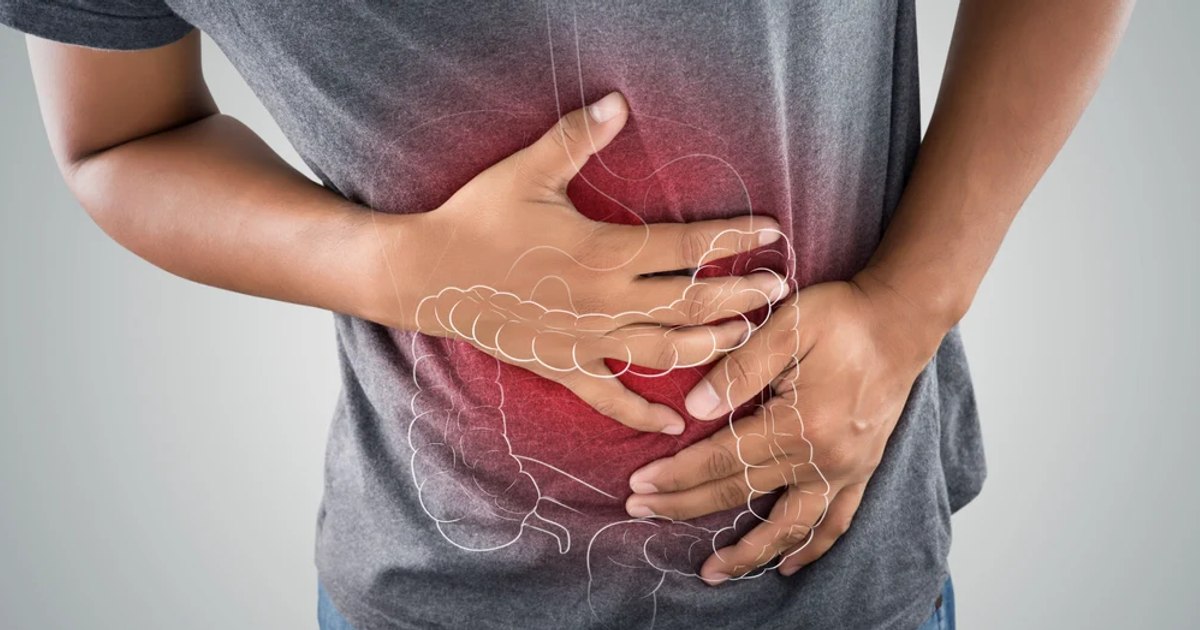The Rising Tide of Colorectal Cancer in young Americans: Understanding the Risks, Recognizing Symptoms, and Taking Action
Table of Contents
- 1. The Rising Tide of Colorectal Cancer in young Americans: Understanding the Risks, Recognizing Symptoms, and Taking Action
- 2. The Scope of the Problem: A Closer Look at U.S. Statistics
- 3. Identifying the Warning Signs: What Young People Need to Know
- 4. Unraveling the Causes: Lifestyle Factors, Genetics, and the Exposome
- 5. Detection and Diagnosis: Understanding Screening Options
- 6. Treatment Strategies: A Personalized Approach
- 7. Moving Forward: A Call to Action
- 8. What are the key warning signs of early-onset colorectal cancer that young adults should be aware of?
- 9. The rising Tide of Colorectal Cancer in Young Americans: An Interview with Dr. Evelyn Reed
- 10. Understanding the scope of the Problem
- 11. Warning Signs: What to Watch For
- 12. Unraveling the Causes
- 13. Detection and Diagnosis
- 14. Treatment Strategies for Young Patients
- 15. Call to Action
For decades, colorectal cancer has been viewed as a disease primarily impacting individuals over the age of 50. However, a disturbing trend has emerged: diagnoses are increasingly common in people in their 40s, 30s, and even 20s. This early-onset colorectal cancer (EOCRC) is not just a statistical anomaly; it’s a growing public health concern wiht profound implications for individuals, families, and the healthcare system.
While colorectal cancer at any age is devastating, the impact is magnified when it strikes younger individuals. Beyond the immediate health challenges, EOCRC can disrupt careers, family planning, and overall quality of life.
The Scope of the Problem: A Closer Look at U.S. Statistics
Colorectal cancer holds a grim position in the United States, ranking as the fourth most common cancer and the second leading cause of cancer-related deaths. The American Cancer Society estimates that in the U.S. this year, over 154,270 individuals will be diagnosed with colorectal cancer, and approximately 52,900 will succumb to the disease. These numbers underscore the critical need for increased awareness, early detection, and effective treatment strategies.
Internationally, the burden is equally alarming. Cancer Research UK reports over 44,000 new cases diagnosed annually, with more than 16,800 deaths each year. Data indicates that, in developed nations like the U.S. and the United Kingdom, the rate of EOCRC is increasing by two to four percent annually. As the 1990s, statistics reveal a troubling surge of over 50 percent in EOCRC cases. In younger adults under 50, colorectal cancer has become a primary cause of cancer deaths in men and the second leading cause in women.
Identifying the Warning Signs: What Young People Need to Know
One of the biggest challenges in combating EOCRC is delayed diagnosis. Young adults frequently enough dismiss potential symptoms, attributing them to benign conditions such as hemorrhoids or irritable bowel syndrome (IBS). It’s crucial to recognize the key warning signs, even if they seem minor:
Changes in bowel habits (diarrhea or constipation)
unexplained weight loss
Fatigue
Abdominal pain
Blood in the stool: This is frequently enough the most alarming symptom. According to the article, if the blood is luminous red, it is “Newer” and likely originates from the lower digestive tract, such as the sigmoid colon, rectum, or anus.Though, darker or black blood is “Older” and could indicate bleeding higher in the colon, small intestine, or stomach.
It’s vital to note that while bright red rectal bleeding is commonly associated with hemorrhoids, the rising incidence of EOCRC means “any worrying symptoms in young people should not be ignored without further investigations.” This blood loss can also cause anemia, leading to persistent fatigue.
Unraveling the Causes: Lifestyle Factors, Genetics, and the Exposome
While the exact causes of EOCRC remain under investigation, research points to a combination of lifestyle factors, genetics, and environmental exposures.Lifestyle Factors:
customary risk factors for colorectal cancer, such as “smoking, alcohol consumption, red meat and processed meat diets, sedentary behavior and obesity,” also apply to younger individuals. A 2023 study by the Cleveland Clinic’s Center for Young-Onset Colorectal Cancer identified higher levels of metabolites from red and processed meats in the blood of young patients with colorectal cancer. These metabolites may “contribute to feeding cancer cells and hijacking normal cells,causing tumor growth while healthy cells are deprived of the energy they need to function normally.”
Obesity, especially visceral fat accumulation around organs like the colon, creates inflammation that can increase the likelihood of cancer cell growth.
Genetic Predisposition:
Approximately 15 to 20 percent of EOCRC cases are attributed to hereditary conditions like Lynch syndrome and familial adenomatous polyposis (FAP). Lynch syndrome, affecting an estimated one in 279 Americans, is a genetic condition where mutations in DNA repair genes significantly increase the risk of uncontrolled cell growth in organs like the colon. FAP causes the development of numerous polyps, which almost always lead to cancer if left untreated.
For individuals with a family history of these conditions, genetic testing and early, frequent screening, including colonoscopies, are vital.
The Exposome:
Interestingly, a significant portion of young colorectal cancer patients do not exhibit traditional risk factors. This points to the concept of the “exposure” – the total amount of environmental exposures a person encounters throughout their life – as a valuable framework for understanding how genetic predisposition and the habitat increase the risk of early cancer. Teams are now trying to find out what are the environmental factors that contribute to increasing the number of colorectal cancer cases in young people.
One emerging theory involves microplastics, which researchers at the University of California San Francisco found can accumulate in the colon, reducing mucus production, a protective layer. Without sufficient mucus, the intestinal walls become vulnerable to contaminants like microplastics and bacteria.
Detection and Diagnosis: Understanding Screening Options
Early detection is crucial for successful treatment. While colonoscopy remains the “gold standard” for diagnosis, the American Cancer Society recommends screening beginning at age 45 for individuals at average risk. The introduction involves a colonoscopy every 10 years. This suggestion might overlook the increasingly concerning number of cases in those 20–30 years old.
home stool tests like Cologuard have gained popularity,allowing individuals to collect and submit stool samples to check for hidden blood or DNA changes that could indicate cancer.A positive test result typically leads to a recommendation for a colonoscopy to confirm the diagnosis.
Treatment Strategies: A Personalized Approach
Treating young individuals with colorectal cancer necessitates special considerations. Genetic testing is essential for any patient diagnosed with EOCRC, particularly to identify hereditary conditions like Lynch or FAP syndrome, which “can have significant implications not only for the patient, but also for it’s relatives, because it could prevent other types of family cancer.”
Young patients with metastatic disease may benefit from aggressive treatment, including surgery to remove the primary tumor and potential metastases in other organs.
Moving Forward: A Call to Action
The rise of EOCRC demands a multi-faceted approach:
Increased Awareness: Public health campaigns should target young adults, emphasizing the importance of recognizing symptoms and seeking prompt medical attention. Expanded Screening Guidelines: The medical community should re-evaluate screening guidelines to determine if earlier screening is warranted for certain high-risk groups.
Continued Research: Further research is needed to understand the complex interplay of lifestyle factors, genetics, and environmental exposures in EOCRC development.
* Personalized Prevention Strategies: Tailored prevention strategies,including dietary modifications,exercise programs,and genetic counseling,can help individuals reduce their risk.By acknowledging the rising tide of colorectal cancer in young Americans, we can empower individuals to take control of their health, promote early detection, and ultimately save lives. As it stands, “Early diagnosis of colorectal cancer is crucial, as cancers detected in early stages can frequently enough be cured only by surgery.”
What are the key warning signs of early-onset colorectal cancer that young adults should be aware of?
The rising Tide of Colorectal Cancer in Young Americans: An Interview with Dr. Evelyn Reed
Archyde News: Welcome, Dr. Reed,and thank you for joining us today. We’re here to discuss the concerning rise of early-onset colorectal cancer (EOCRC) in young Americans. can you give us an overview of the current situation?
Dr.Reed: Thank you for having me. Its a critical issue. We’re seeing a troubling increase in colorectal cancer diagnoses in individuals under 50, a demographic that was previously considered less at risk. We’re seeing this trend across the U.S. and internationally.
Understanding the scope of the Problem
Archyde News: The statistics are alarming. What can you share with our audience regarding the numbers?
Dr. Reed: Colorectal cancer is the fourth most common cancer in the U.S. and the second leading cause of cancer-related deaths overall. The American Cancer Society estimates over 154,270 new cases this year, with a important portion impacting younger adults. Reports indicate that the rate of EOCRC has increased by 2 to 4% annually.
Warning Signs: What to Watch For
Archyde News: One of the significant challenges is delayed diagnosis.What are the key warning signs that young people should be aware of?
Dr.Reed: It’s crucial. Young adults often dismiss symptoms. Pay attention to changes in bowel habits like diarrhea or constipation, unexplained weight loss, fatigue, abdominal pain, and, very importantly, blood in the stool. If you see shining red blood, it might very well be a sign of the bleeding from lower digestive tract.Any worrying symptom should be investigated without delay.
Unraveling the Causes
Archyde News: The causes are complex. What are the main factors contributing to this rise in EOCRC?
Dr.Reed: It’s a combination. Lifestyle factors like smoking, alcohol consumption, red and processed meat consumption, sedentary behavior, and obesity all play a role. Additionally,genetic predisposition,especially conditions like lynch syndrome,is a factor. We’re also exploring the role of the “exposome” – the totality of environmental exposures.A new theory is the microplastic affecting the colon’s ability to protect itself.
Detection and Diagnosis
Archyde News: Early detection saves lives. What screening options are available,and at what age should people consider them?
Dr. Reed: Colonoscopy is the gold standard. The American Cancer Society recommends screening starting at age 45 for average-risk individuals, but given the increasing number of cases within younger age groups, we need to look closer at the recommendations. Home stool tests like Cologuard offer a convenient alternative. For those at higher risk, early and frequent screening is essential.
Treatment Strategies for Young Patients
Archyde News: Treatment for young patients can need a personalized approach. Can you elaborate?
Dr. Reed: Yes. Genetic testing is a must to identify conditions like Lynch syndrome, which impact the treatment. Aggressive treatment, including surgery and, when necessary, chemotherapy, is often necessary for better outcomes in younger patients, particularly from metastatic disease.
Call to Action
Archyde News: What steps can we take to address this rising issue?
Dr. Reed: We need increased awareness campaigns targeting young adults, expanded screening guidelines, ongoing research into causes, and personalized prevention strategies.Dietary modifications, exercise programs and genetic counseling, can definitely help in risk reduction.
Archyde News: Thank you, Dr.Reed, for such valuable insights. What one thing woudl you recommend to the audience?
Dr. reed: don’t hesitate if the symptoms are present, the early diagnosis of colorectal cancer is crucial and can lead to complete remission.
Archyde news: Thank you again for taking the time to speak with us. This is a crucial conversation.








